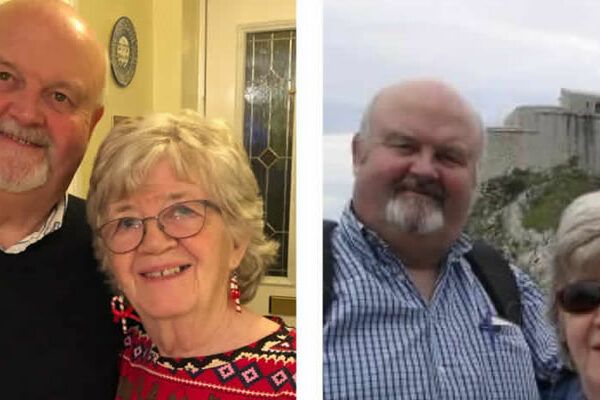My Story: David

After struggling to manage his type 2 diabetes for 23 years, David was referred in 2020 by his GP to the award-winning Low Carb Program. With this support to change his lifestyle, David has now put his type 2 diabetes in remission.
Obese for nearly his entire adult life, the 65-year-old’s unhealthy relationship with food and drink started in adolescence. David described his twenties, re-counting how he ‘began to get into the habit of excessive drinking, leaving the pub at night and getting a takeaway, to munch watching the TV before bedtime’. This, combined with a sedentary lifestyle, meant David’s health suffered, triggering triple coronary heart by-pass surgery in 2007 and resulting in having a pacemaker fitted.
This surgery was the wakeup call David needed, acting as the catalyst to start his health transformation journey. He stopped eating red meat, gorging on sweets and gave up alcohol altogether. But it was only when he signed up to the Low Carb Program that David started to see some significant improvements.
Low Carb Program is a CE-marked and NHS verified tool with a mission to help 16 million people place their type 2 diabetes and prediabetes into remission in the next five years through clinically demonstrated behavioural change. The Low Carb Program’s tailored education resource, which includes meal plans and coaching to improve a person’s metabolic health, is aimed at individuals who are overweight (obese, BMI above 30), those with prediabetes, type 2 diabetes, polycystic ovarian syndrome, and non-alcoholic fatty liver disease. Low Carb Program intends to improve a person’s HbA1c (glycated hemoglobin providing an average blood sugar result over the past three months), reduce medications and place type 2 diabetes into remission. Often, it results in sustainable weight loss and significant health improvements after one year.
If poorly managed, type 2 diabetes can cause high blood pressure, cardiovascular disease, glaucoma, cataracts, diabetic retinopathy, nerve damage, kidney damage, depression, stroke and dementia. Diabetes UK estimates that ‘13.6 million people in the UK are at risk of developing type 2 diabetes,’ and predicts ‘if nothing changes 5.5 million people will have type 2 diabetes in the UK by 2030.’[1] The best way to manage type 2 diabetes, they recommend, is by making lifestyle changes early on.
The Low Carb Program bootcamp also gave him the confidence to reach his goals and try new things – like swimming – whilst having the support to keep track of his progress, proving ‘permanent change is possible.’
David took part in one of the most popular aspects of the Low Carb Program – weekly virtual meet ups, which became the ideal method of support when the COVID-19 pandemic began. The Low Carb Program also offers one-to-one check ins with a mentor prior to the virtual meet ups, helping to keep users on track. After completing Low Carb Program’s 12 Week Bootcamp, David was clinically diagnosed as being in type 2 diabetes remission.
Low Carb Program taught David ‘to cut down carbs to a low level’ while ensuring he still enjoyed a variety of foods including ‘lots of leafy vegetables, chicken, cheese, berries and cream and fish.’ After recalling how his experiences with other dieting methods ‘had some impact’ but were never enough to bring him below the ‘obese’ threshold, David’s weight is now the lowest it has been in his adult life, declaring “Life can be much richer and more satisfying without the carbs!” The Low Carb Program bootcamp also gave him the confidence to reach his goals and try new things – like swimming – whilst having the support to keep track of his progress, proving ‘permanent change is possible.’
Describing his experience with the Low Carb Program as ‘almost lifesaving and certainly life-enhancing,’ David plans to continue following the approach for the rest of his life.
[1] https://www.diabetes.org.uk/professionals/position-statements-reports/statistics#:~:text=More%20people%20than%20ever%20have,diabetes%20have%20type%202%20diabetes.
test pull quote
- Test
- Test